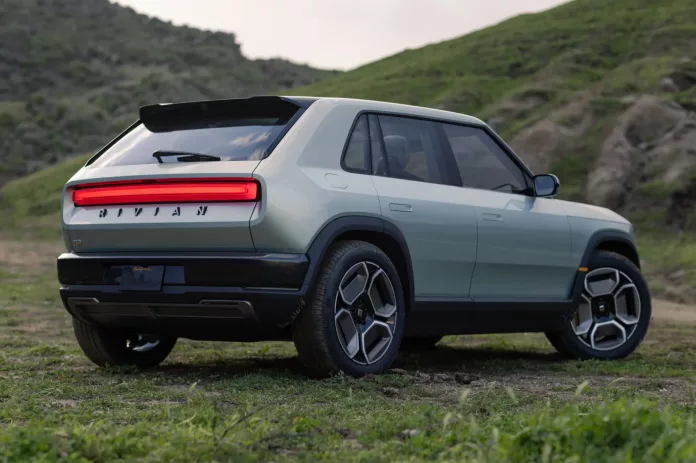Rivian, much like Tesla in its early days, faces the tall order of upscaling its production and sales to fuel its growth ambitions. Unlike Tesla’s formative years, the current economic climate presents Rivian with even greater hurdles, notably higher interest rates and a fossil fuel industry that has come out swinging against the rise of electric vehicles.
The opposition to EVs is mounting, with detractors from the fossil fuel sector aggressively casting doubt on electric cars to sow uncertainty among potential buyers.
The Next Chapter for Rivian: Introducing the R2, R3, and R3X
While Tesla’s foray with unique features like the falcon-wing doors of the Model X and the futuristic Cybertruck drew its focus for several years, Rivian is opting for a different strategy by unveiling three new models: the R2, R3, and the performance-enhanced R3X. These vehicles aim to satisfy the more budget-conscious segments of the car-buying market.
Diving Into the Technical Prowess of Rivian’s New Models
Their latest offerings will be built on a new midsize platform that streamlines part usage and features a built-in structural battery unit that doubles as the vehicle’s floor. Rivian’s pursuit of innovation is evident in their battery technology as well. They’re incorporating taller 4695 cylindrical battery cells to ensure higher charge and discharge rates, complemented by a more effective regenerative braking system.
The R2 and its siblings are preparing to leap into the future with 1000V architecture, an advancement from the 800V setup that other industry players are standardizing on. Rivian’s higher voltage capability hints at a potential 900kW or roughly 1,200 horsepower at peak performance. Furthermore, the R2 and R3 models promise two battery sizes with the larger one providing over 300 miles of range and breathtaking acceleration of under 3 seconds to 60 mph for the most powerful configurations.
Spotlight on the Rivian R2: Compact, Capable, and Cost-Efficient
The R2 is designed to be a sturdy, compact option, providing a balance of size, power, and affordability. This five-passenger SUV manages to shave inches off its larger siblings without compromising on space and functionality. The R2’s debut is keenly anticipated, boasting a starting price under $45,000 and compatibility with Tesla Superchargers, thanks to the NACS charge ports.
With advanced autonomous capabilities and a comprehensive sensor suite, the R2 aims for enhanced safety and a cutting-edge driving experience. Rivian CEO RJ Scaringe emphasizes the R2’s accessible price point and the company’s focus on delivering innovation without sacrificing the brand’s identity and allure.
Refinement and Practicality: The Hallmarks of Rivian’s R2
The R2 model brings a slew of practical features, including expanded legroom, versatile seating and storage configurations, and thoughtful design touches like a new steering wheel with integrated haptic controls for an attentive driving experience. These refinements demonstrate Rivian’s dedication to blending ruggedness with user-centered design and functionality.
Enticing and Exciting: Introducing the Rivian R3 and R3X
For those longing for even more dynamism in a compact form, the R3 and its high-performance counterpart, the R3X, deliver excitement in spades. Described as packing a punch in both comfort and capability, the R3 models look to extend the Rivian brand into new terrain while retaining its instantly recognizable design language.
Strategic Manufacturing Decisions: Focusing on the Illinois Plant
Amid economic turbulence, Rivian is opting for a strategic production shift, focusing on leveraging its existing facility in Normal, Illinois, to kickstart manufacturing of the R2 and R3. This move is a tactical step to manage costs and ramp-up production efficiently while delaying the plans for a new factory in Georgia until a steadier financial base is secured.
Rivian’s Journey: Fraught with Challenges but Brimming with Potential
Rivian’s success is far from guaranteed despite the buzz surrounding its new product lines. Pricing schemes remain a key factor as higher-end models are expected to come with heftier price tags. Furthermore, it remains to be seen whether these new vehicles will qualify for federal EV incentives, which could greatly influence their market appeal. The automotive industry is tough and unpredictable, and the path from hype to mass production is fraught with potential setbacks. As Rivian inches closer to its vision, only time will tell if this ambitious venture will cement itself as a staple in the EV narrative.
























